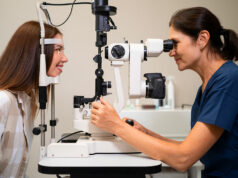Medicine Cabinet
Teodoro B. Padilla
(First of two parts)
For the first time since the siege of Marawi City three weeks ago, the national flag was raised to mark our Independence Day in the war-torn southern city. The hoisted flag at the Marawi City Hall on Monday symbolized the ongoing quest for freedom from the armed conflict, which has claimed the lives of many, including civilians.
Also on Independence Day, a group launched a different kind of campaign with the hope of liberating millions of men, women and children from a potentially catastrophic disease.
Dubbed as “Kalayaan mula sa Kanser” or “Freedom from Cancer” campaign, it aims to bring spotlight on issues related to cancer. In its online change.org petition, the Cancer Coalition Philippines (CCPh) said that cancer is a growing and serious public health concern that hinders the country’s poverty reduction and development goals.
The World Health Organization revealed that close to nine million people died of cancer in 2015, making it the second leading cause of death globally. By the year 2030, cancer cases are expected to increase by 85%, particularly for less developed countries like the Philippines. It is also estimated that one out of 1,800 Filipinos is diagnosed with cancer each year, or close to 280,000 new cancer cases in the Philippines annually.
At the center of the country’s development goals is the welfare and well-being of children. However, cancer does not spare anyone, even the young. At least 3,900 children are being diagnosed with cancer every year. Most of these children are deprived of their right to be healthy and thus, unable to achieve their dreams and full potentials.
Cancer also disrupts the family as it takes away fathers, mothers, sons and daughters. The Philippine Statistical Authority (PSA) disclosed that one in every 10 registered deaths in the country is attributable to cancer. Since 2004, cancers have been the third leading cause of death following cardiovascular diseases, while for child mortality and morbidity, cancer ranked 4th.
Given the high consequences of cancer on the Filipino patient, family and society, the CCPh is calling for the passage of an integrated national cancer law. The online campaign aims to secure signatories to urge lawmakers to enact the said law.
“We all know the burden that cancer places on patients, their loved ones, even on their employers and society as a whole, as such, it’s about time everyone comes together to put in place something solid,” said Dr. Rachel Rosario of the Philippine Cancer Society.
The proposed measure will cover the entire spectrum of prevention, detection, diagnosis, treatment, survivorship and palliative care, according to CCPh co-chair Ms. Kara Magsanoc-Alikpala of the I Can Serve Foundation.
Ms. Menchie Auste, representing Cancer Warriors and a coalition member, also noted that the World Health Assembly recently called on member countries to put into action national programs for cancer prevention and control. Apart from the online petition, the CCPh is also working with the government, policy makers, the private sector, civil society, and international development partners to inspire breakthroughs and spark the adoption of innovations and good practice models for better health outcomes for cancer patients, the survivors, and their families.
The CCPh is composed of the Philippine Cancer Society, Philippine Society of Oncologists, I Can Serve Foundation, Cancer Warriors Foundation, Carewell Community Foundation, Project: Brave Kids and the Pharmaceutical and Healthcare Association of the Philippines (PHAP).
(To be continued)
Medicine Cabinet is a column of the Pharmaceutical and Healthcare Association of the Philippines (PHAP), representing the research-based medicines and vaccines sector in the country.
Teodoro B. Padilla is the executive director of PHAP. Mr. Padilla is a cum laude graduate of Bachelor of Science in Business Administration from the University of the Philippines and further acquired a masteral degree from Kellogg School of Management. E-mail the author at medicinecabinet@phap.org.ph.



